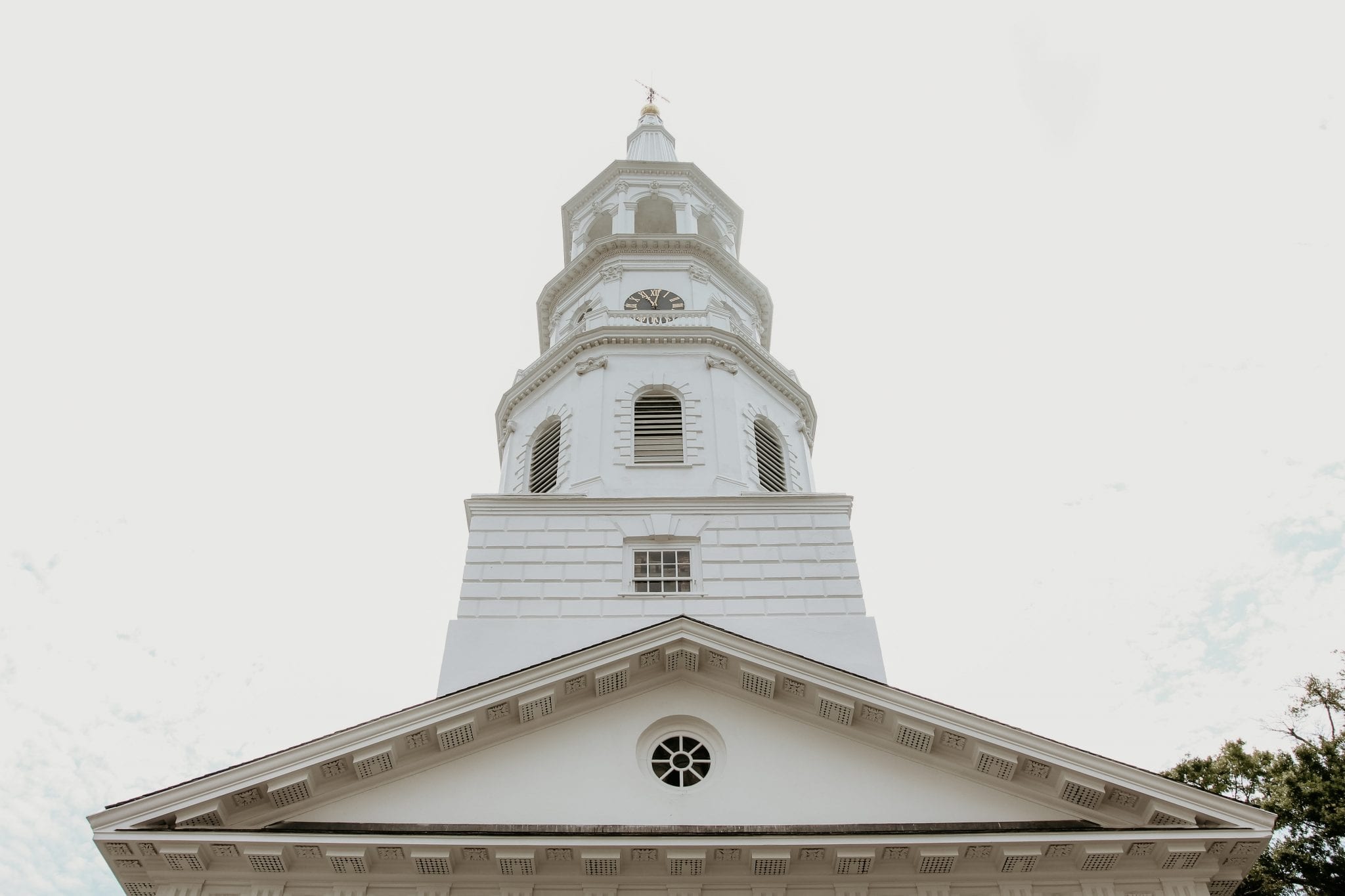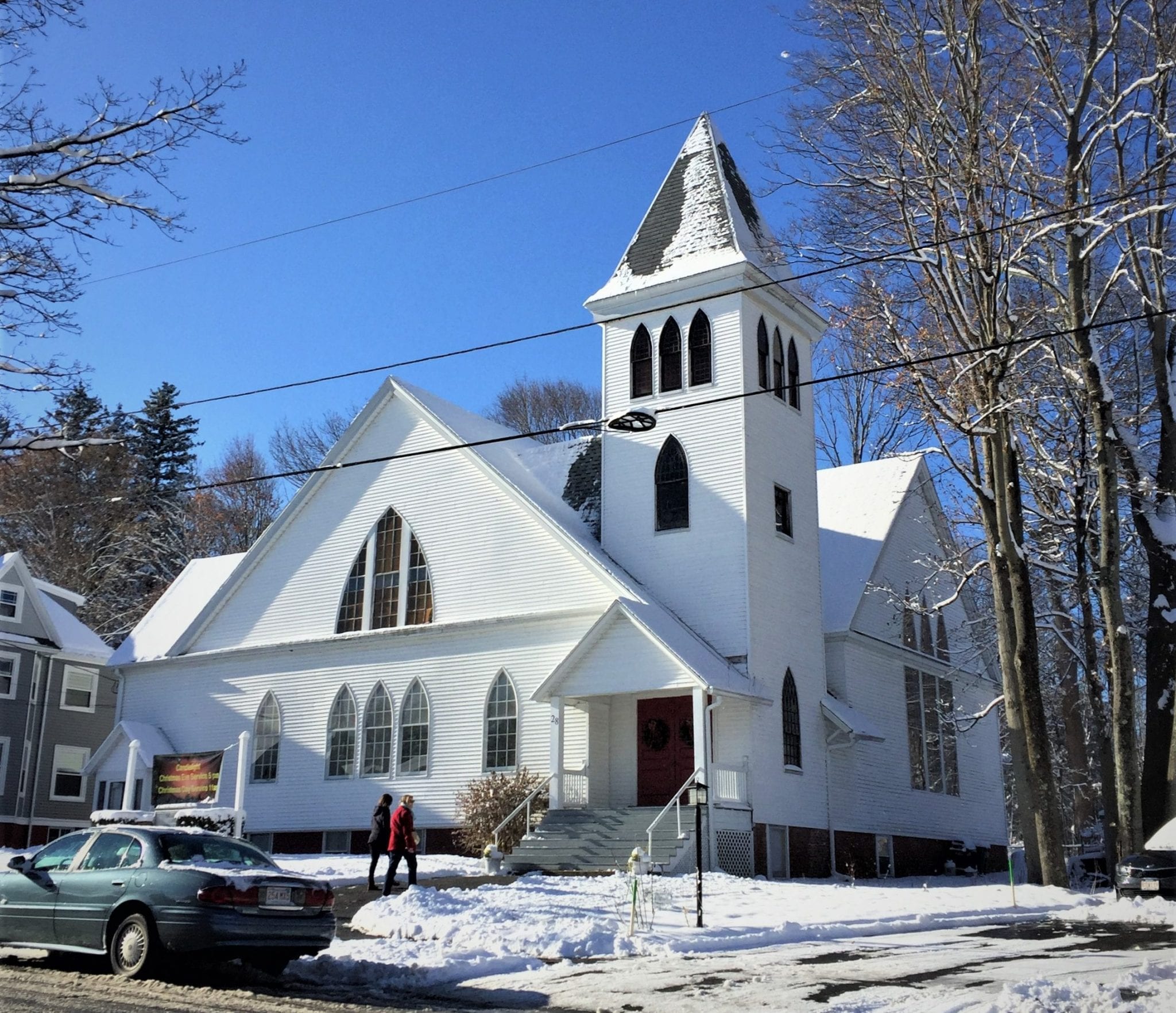On Episode 98 of The Edge of Innovation, we’re talking with Mark Dever, the senior pastor at Capitol Hill Baptist Church in Washington D.C. about how a church is different than other organizations.

Hacking the Future of Business!

On Episode 98 of The Edge of Innovation, we’re talking with Mark Dever, the senior pastor at Capitol Hill Baptist Church in Washington D.C. about how a church is different than other organizations.

On Episode 97 of The Edge of Innovation, we’re talking with Mark Dever, the senior pastor at Capitol Hill Baptist Church in Washington D.C.
Introduction
A Church on Capitol Hill
About Mark Dever
What is a Church?
Are All Churches Equal?
Why Do People Go To Church?
Who Is God?
More Episodes
Show Notes
Paul: So, welcome to the Edge of Innovation. Today were talking with Mark Dever from Washington D.C. Mark, I usually put in there the owner of ABC company, but I’m struck. What do you do?
Mark: For a quarter of a century now I’ve been the pastor of a church on Capitol Hill in Washington D.C.
Paul: Okay, so you’re a pastor. What kind of church? I mean is it Buddhist church? Help me out.
Mark. It’s a Christian church. It’s a Baptist church. It’s been around since right after the Civil War.
Paul: So, you’re in Capitol Hill. That sounds like a very interesting place to be. I know a bunch of different people that live in the Washington D.C area and do you suffer from the same myopic view of the world that other people in D.C. suffer from? Because I’m in Boston and people are listening to us from all over the world and I imagine that D.C. has a sort of realty distortion feel. Is that a part of your life?
Mark: People seem to think that is the case. That, you know, if you live, as we put it, inside the beltway, that your absorbed with things that go on here. I think the nature of my work takes me outside the beltway more than most. So, I might be a little less absorbed than the guy who works five blocks away in the Capitol Building.
Paul: Okay.
Mark: Behind the Supreme Court and the Library of Congress. Five blocks just east of the Capitol Building.
Paul: Very cool. So that must be neat. Now you have a church and it’s been there since, you said the 1800s. that’s quite a long time. Do a lot of people go to it? Is it a thriving church? Is it a healthy organization?
Mark: We have about a thousand people on Sunday mornings. And yeah, about a four million dollar, not quite, 3.5 million dollar annual budget. The congregation’s average age is probably about thirty. Yeah, it’s a delightful congregation to be a part of. It has a lot of transiency because were in the middle of the city. A lot of young people come here to work after college and then they meet a spouse, start having kids, find D.C. in the middle is too expensive to live in so they either move out to the suburbs or back up to Boston or someplace.
Paul: I see. And so now, you’ve been there 25 years?
Mark: 25 years.
Paul: Wow! Is this what you, when you were young, is this what you envisioned you’d be doing?
Mark: Interestingly, you assume I’m not young but no, in fact, it’s not. I thought I would be a professor.
Paul: A professor of what?
Mark: A professor of historical theology, which means what people in the past have believed.
Paul: Okay, well that’s a whole interesting thing we should talk about. But let’s continue down our path. So, you were going to be a professor.
Paul: A thousand people at a church. Is that a lot? Is that a little? Is that how you measure the success of a church? You know, I have a small business. We have eleven employees. And that’s a small business. A very small business. But then you’re talking, you know, Boeing. It has thousands of employees, tens of thousands. So, how do you rank that or how do we even discuss that kind of thing?
Mark: I think the average church in America is fifty to a hundred people. So, I think this would be a large church but it’s not what they call in the press, a mega church which is like two thousand or five thousand or ten thousand. This is just like a thousand. It’s a big church.
Paul: I imagine church has something to do with faith and there are many different faiths. How is a church different from like the YMCA or a club or a fraternal club or things like that? Is there a difference?
Mark: Yeah, I think a sociologist or an anthropologist could look at them and see some similarities of them being voluntary social organizations but certainly, from inside a church, it’s very very different because a lot of our members of our church will be members of other organizations. Like, for example, the ones you just named. Or maybe they’re an engineer and they’re part of an association of certain kinds of engineers or they’re a doctor or a they’re teacher and they’re part of a teacher’s union or part of the faculty of the local high school.
But no. A church is distinctive in that it’s specifically a grouping of Christians and it would be people who understand themselves to be taking on special responsibilities for each other and having others take on special responsibilities for them. So, for an example, when we had an older woman in our church a number of years ago, who had never been married and had no children and she grew older and became more infirm. She had worked in our church back in the 1950s and 60s on staff. In retrospect, we felt we had not taken good enough care of her back then, so we simply absorbed all of her costs of her last years as she moved into a home and needed medical attention. We simply as a church, paid for all of that.
Paul: Interesting. And so, does that happen from the leadership….? So, you mentioned you have members of the church. I’m thinking I’ve been a member of a photography club for years and we certainly don’t help people with their needs. We tell them their photo doesn’t look good or you need to do this, or the lens goes away from you when you take the picture and push the button. But this sounds very different.
Mark: Yeah. It’s probably more comprehensive. We would understand that a good local church should be at the center of each Christian’s life and it will help them think through everything from their marriage, to their own relationship with God, to their children, to their job, their education, their neighborhood. Yeah.
Paul: Okay, that’s interesting. So a church is a – I’m just going to repeat back to you what I heard – an organization much more holistic than a photography club, to use that example, that really is concerned with the wellbeing of the people within it? Is that fair?
Mark: That’s certainly fair. We’re also concerned that the basic understanding of God and the relationship we come to have with him through Jesus Christ, is something that he wants everyone to have so we understand that we are under obligation to make this known to others outside our church and even around the world and faraway places like Yemen and Saudi Arabia.
Paul: The church has so – I’m stopping myself here because there are lots of different types of churches. You mentioned that you’re a Baptist church. I’ve heard of the Catholic church. I’ve heard of Lutheran, Methodist, you know, Scientology as a church. I don’t even know much about that but what are the differentiators between these? Are they all churches equal or are they different?
Mark: Well usually if there’s a different name attached to a church, there’s some difference behind it that gives rise to that different name. So, Christian churches would be those churches that are Greek Orthodox, Roman Catholic, Protestant, those churches that maintain that God became a man in Jesus Christ. That would be different that something you mentioned like Scientology which would not be that. Or even “The Church of Jesus Christ of the Latter Day Saints” – the Mormons – who would teach that every person is an incarnate potential deity. So, Scientology, Mormonism, would be very different.
Our church would be in the strain of Greek Orthodoxy, Roman Catholicism, Presbyterianism, which would believe very much in Jesus Christ at the center. We would be different than the old strains of Greek Orthodox or Eastern Orthodox and Roman Catholic. We’d be with the Protestants in that we believe the way we’re basically made right with God is by trusting in Christ. It’s not by anything we do to cooperate with the church. It’s just our faith in Christ. But that leads us to be a part of local churches which is what all Lutherans, Anglicans, Presbyterians, Baptists, Methodists, and Congregationalists have historically believed.
Paul: So, it sounds like you have a bent towards understanding the history of the church?
Mark: I did my PHD in Cambridge on history.
Paul: So, I’m struck by… there’s lots of different labels that we’re talking about and they mean different things. Like if you were talking to me about computers or a certain type of technology, I would understand those labels and I guess you’re saying that the belief… Why do people come to your church, Capitol Hill, as a oppose to a church down the street? Is it because you’re a good CEO or what is that?
Mark: I’m sure there are as many different reasons as there are people. Maybe because they like the preaching. They like the singing. They have a friend that comes here. It may be because they’ve found their life changed by this specific teaching that they hear here, or someone at another church that they had been prospering in spiritually, recommended they come here when they moved to D.C.
Paul: Now do you have a sign – not in reality – the idea of a sign that says “Here’s why you’d come to Capitol Hill Baptist church?” What are you advertising? What are you selling?
Mark: Yeah. We wouldn’t actually be in competition with other churches that have the same gospel as we do. So, there would be many churches in Washington D.C. and we would understand that there is no great difference between you going to them or you going to us. We would say the important thing is you going to a church where the Bible is understood and taught.
Paul: Okay, and now you’re The Bible, the Christian Bible which I guess is the Old Testament, New Testament, as opposed to some of the other religious books that have been out there?
Mark: Right. The Hebrew scriptures plus the twenty-seven books of the New Testament.
Paul: Okay, so you’re a place where that is believed, championed, it’s a good idea?
Mark: All of those things. Like if you read Justin Martyr writing in the middle of the second century. He will talk about how on the first day of each week all the Christians gather, and they hear the Gospels read and then they have someone explain it to them. That’s exactly what we do. We read the Bible and we talk about it. We sing and we pray. So, we do what Christians have always done and that’s what so many Christians around the world do every Sunday.
Paul: So, is that different from let’s say, reading the newspaper every Sunday?
Mark: Yeah, because we don’t understand that the newspaper comes from God, whereas we understand that the Bible comes from God.
Paul: So, you’re saying that the Bible comes from God and who is God in this? I mean, there’s a lot of different definitions and I imagine if you lined up twelve people on the street and asked “Who is God?” you’d get different answers.
Mark: Yeah.
Paul: In your world, in Capitol Hill Baptist Church, in Mark Dever’s world, who is God? Is he…?
Mark: If God exists, He exists regardless of how you or I perceive him. So, regardless of whether we’re in Mark Dever’s world, we’re in God’s world. We can close our eyes but He’s still there. He’s a sentient being who made everything that is and He has made people especially to be like Him in His image and He’s given us His will and His word and His law and He calls us to follow Him. And by nature, we tend to follow Him some but also we break His law. We do what is wrong. We do what the Bible calls sin.
And that’s where Christianity comes in. We understand that God sent his only son, Jesus Christ, to live a life of complete trust in Him and then died as a substitute sacrifice on the cross. You’ve probably seen the cross and associated that with Christianity. That’s how it is at the center. That’s the sacrifice that we understand that Jesus made to assuage or satisfy God’s wrath against us for all we’ve done that’s wrong. Jesus took that punishment. He died in the place of all of us who trust in Him. That’s the good news that we as Christians share with people in our church and really all truly Christian churches.
Paul: Okay, but couldn’t God just overlook that? I have children that do things that are wrong and sometimes I discipline them for that but many times I overlook it
Mark: Well, you say “couldn’t” like that is an ability and to not do that is something like a disability. But when you’re talking about overlooking that which is good and overlooking that which is evil, that would not be good on God’s part. It would be an evil thing for Him to ignore injustices that were done. So, it’s really, it’s a problem with our language that we speak of God as being able to overlook that which is evil. That would really be a disability of God’s.
Paul: Okay. So, you’re not talking whether He’s able or not, but whether He would.
Mark: Yeah. He will not because He is good.
Paul: Interesting.
So, we’ve been speaking with Mark Dever, the senior pastor at Capitol Hill Baptist Church in Washington D.C.
Thanks for listening and we’d love your feedback!
This is Part 1 of 3 our interview with Mark Dever. Stay tuned for parts 2 & 3, coming soon!

On episode 58 of The Edge of Innovation, we are exploring Christianity and who God is with Pastor Paul Buckley of King of Grace Church.

On episode 57 of The Edge of Innovation, we are exploring Christianity with Pastor Paul Buckley of King of Grace Church.

On episode 56 of The Edge of Innovation, we are talking with Pastor Paul Buckley of King of Grace Church in Haverhill, Massachusetts.